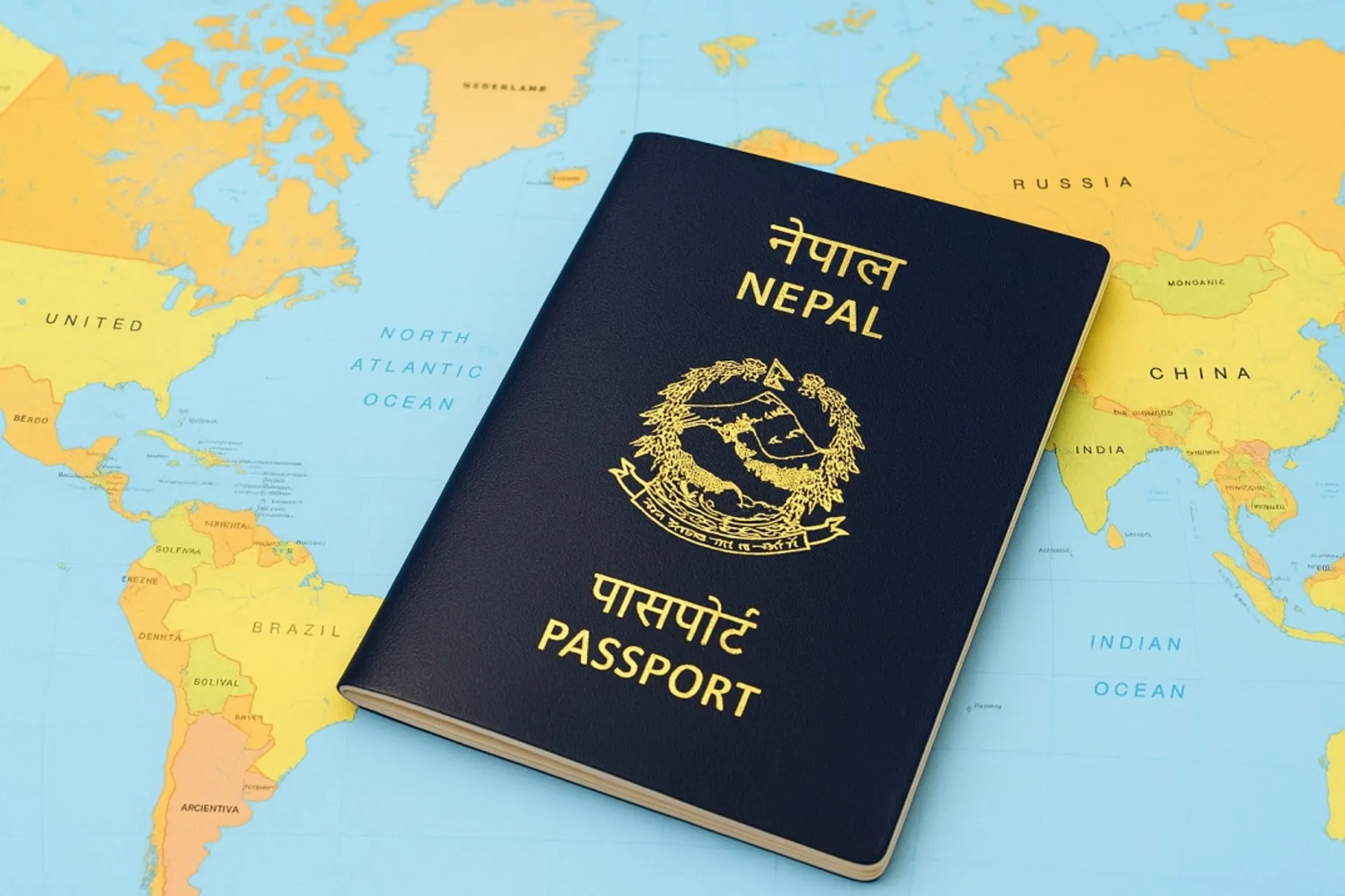Read Our Latest Blogs

Countries where Nepalese can travel Visa Free | MyVisitVisa
Are you a Nepalese citizen dreaming of spontaneous getaways without the headache of pre-approved visas? The world is opening up, and with your Nepali passport, you have access to a surprising number of countries offering either Visa-Free entry or a convenient Visa-On-Arrival (VOA)/Electronic Travel Authorisation (eTA) process!
At MyvisitVisa, your premier visa services provider, we understand the complexities of international travel. This in-depth guide is designed to highlight your passport power, simplify the process, and help you plan your next adventure with confidence.
Passport Power: Visa-Free & Visa-On-Arrival Destinations for Nepali Nationals
While visa requirements are always subject to change based on global relations and specific travel agreements, here is a breakdown of countries where Nepalese passport holders typically enjoy relaxed entry policies (always verify before booking!):
| Category | Destinations | Typical Stay Duration |
| Visa-Free Entry | Barbados, Cook Island, Dominicia, Gambia, Haiti, India, Micronesia, Pakistan, Philippines, Singapore, Saint Vincent and the Grenadines | Varies (e.g., 21 to 90 days) |
| Visa-On-Arrival (VOA) | Bangladesh, Burundi, Cambodia, Cape Verde, Comoros, Djibouti, Egypt, Guinea-Bissau, Laos, Madagascar, Maldives, Mauritius, Mozambique, Niue, Palau, Rwanda, Samoa, Senegal, Seychelles, Tanzania, Timor-Leste, Trinidad and Tobago, Tuvalu | Varies (e.g., 30 to 90 days) |
| eTA / eVisa | Sri Lanka, Kenya | Varies (e.g., up to 30 days) |
Need personalized travel advice or assistance with a required visa? Our expert Visa Services team at MyvisitVisa offers tailored Visa Consulting and Application Processing for virtually any global destination!
The Process: Visa-Free vs. Visa-On-Arrival
Understanding the difference between these entry types is crucial for smooth travel:
1. Visa-Free Entry: Seamless Border Crossing
For truly Visa-Free Countries, the process is the most straightforward.
- Process: Simply present your valid Nepali passport at the immigration counter upon arrival. The immigration officer will review your documents (and potentially your return ticket/hotel booking) and stamp your passport with an entry permit valid for the specified duration (e.g., 30 or 90 days).
- Key Requirement: A passport that is valid for at least six months beyond your planned date of departure.
2. Visa-On-Arrival (VOA): Quick and Easy at the Airport
In VOA countries, you obtain your visa upon landing, right before you reach the main immigration counter.
- Process:
- Fill out a Form: Locate the VOA counter or kiosk and complete a physical or digital application form.
- Submit Documents: Present your passport, the completed form, and a passport-size photo (some countries take digital photos).
- Pay the Fee: Pay the required VOA fee. This is usually paid in USD or the local currency, often in CASH only.
- Receive Visa: The immigration officer will affix the visa sticker or stamp in your passport.
- Key Requirement: Have the exact VOA fee in cash ready, as credit card facilities can be unreliable.
3. Electronic Travel Authorization (eTA) / eVisa: Pre-Travel Convenience
Some nations require an eTA or eVisa, which, while not a traditional visa, must be secured online before you travel.
- Process:
- Online Application: Complete the application on the destination country's official government website.
- Payment: Pay the fee online (usually by card).
- Approval: Receive the approved eTA/eVisa document via email (usually within hours to a few days).
- Key Requirement: Print the confirmation/approval document and carry it with you to present at check-in and on arrival.
Essential Requirements and Travel Care Tips
Even with the easiest entry policies, successful international travel requires preparation. Do not overlook these critical steps:
| Requirement | Details and Tips |
| Valid Passport | Must be valid for at least 6 months beyond your intended departure date from the destination country. Ensure you have blank pages for entry/exit stamps. |
| Return/Onward Ticket | Many immigration officers, even in visa-free zones, require proof that you plan to leave the country. Always have a confirmed return or onward flight booking. |
| Proof of Funds | Be prepared to show a bank statement or cash demonstrating sufficient funds to cover your stay. A general rule is $50-$100 per day. |
| Accommodation Proof | Printouts of your hotel bookings or an invitation letter with the host’s details are often mandatory. |
| Travel Insurance | Highly recommended. This protects you against medical emergencies, flight cancellations, or lost luggage-an essential travel safeguard. |
| Passport Photos | Carry a few recent, standard passport-size photos (white background) for any unexpected VOA applications or forms. |
Plan Your Trip with MyvisitVisa!
While Visa-Free travel is an exciting option, many sought-after destinations still require a traditional visa. Don't let complicated forms or changing regulations stop you!
MyvisitVisa specialises in stress-free Visa Application Assistance for Nepalese citizens applying for difficult visas like Schengen Visas, USA Tourist Visas, UK Visitor Visas, and Canada Tourist Visas.
Contact us today for a comprehensive Visa Consultation and take the first step toward your global adventure!